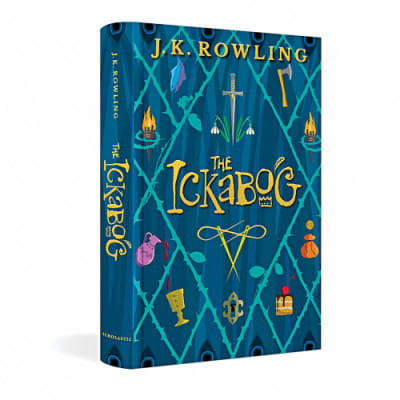JK Rowling’s Disappointing Cry for Relevance

There are two kinds of children's stories: those which you dust off as an adult and find yourself discovering new depths to upon revisiting, and those that you flick through and donate. Narnia, Three Investigators, Coraline, Percy Jackson all bring back fond memories of childhood upon rereading, but usually with added insight into the story—insight that only comes with age. And while Harry Potter arguably defined the former category for an entire generation of readers, The Ickabog (Little, Brown Books for Young Readers, 2020), JK Rowling's new foray into children's fiction, sadly, falls squarely in the latter.
Let us start with the good parts of The Ickabog: the story. It is a classic story of rebellion, one told already in Star Wars, Avatar: The Last Airbender, and indeed by Rowling herself in Order of the Phoenix. A children's book warning of autocracies, fake news, and misdirection is always a pertinent story, especially so in today's times. To subtly weave such themes into a story for children, however, requires an author with a delicate touch, one JK Rowling seems to have lost over the years. The Ickabog bludgeons readers over the head with one dimensional plot points, characters, and even setting. It is a book where cartoonish villains do cartoonishly evil things for paper thin reasons, and cartoonishly earnest heroes thwart them at the end of the day.
Which would all be well and good if this were a book for infants. Indeed, the prose itself seems to suggest so—it is very simple, with an almost nursery story quality to it, albeit confusingly peppered with college-level vocabulary. However, the intended audience for The Ickabog is between seven and nine—ages at which children start developing a taste for nuanced storytelling. Many children start reading Harry Potter around that age, and to hand them a book like this would feel like being talked down to. The language and storytelling are pandering to its core audience, with no sense of what children are capable of, or enjoy. Granted, this seems to be a stylistic choice to make the story read more like a fairy tale, but that is a goal the prose fails at achieving. It is structurally off—too self-aware to work as a fairy tale, but not self-aware enough to realise this.
The style of prose also lends itself to a very bullet-point style of narrative. Descriptions are sparse, scenes are non-existent, and character motivations and internal struggles never explored to any depth. Suspense, drama, mystery—none of it builds or stews. Events happen, are resolved, and then we move on. While this style of prose works for some short stories and folk tales told by a fire, it fails remarkably when applied to a full-length children's novel.
Everything above would be somewhat forgivable had the pacing of the book not been completely unbalanced. It is nearly halfway through the book before the setup ends and the main story begins. The setup is undoubtedly necessary, but with no suspense, drama, or characters to truly root for, waiting over half the book to get to the interesting parts is a massive ask for any reader. One struggles to imagine a seven or even five-year-old who would stick with the book for over 150 pages with such a flimsy promise.
The Ickabog was intended to be a story for children about the abuse of power, and the power of kindness in the face of hate and bigotry. It was meant to be a reprieve for both parents and children during the COVID-19 lockdown. What it ended up being is a perfect threat for children to stop misbehaving, for it is an incredibly arduous a task to finish the book, regardless of the readers' age group. If anything, it is proof that JK Rowling has truly forgotten what it was that made her the premiere children's author for a generation.
Yaameen Al-Muttaqi works with robots and writes stories of dragons, magic, friendship, and hope. Send him a raven at [email protected].

 For all latest news, follow The Daily Star's Google News channel.
For all latest news, follow The Daily Star's Google News channel. 



Comments